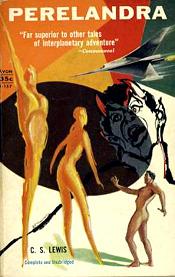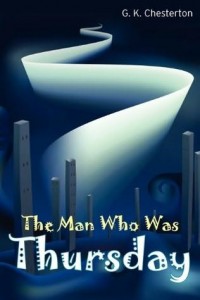So I wanted to raffle off a few copies of my novel to pastors. The book’s themes seem like something a pastor might get into, plus I just wanted to encourage those in ministry. I contacted a pastor friend of mine who oversees a terrific ministry for ministers. He ran the contest and last week I mailed out three autographed copies of The Resurrection. Well, I happened to ask him how many entries he received. Surprisingly (to me), he said “not many.” The reason he gave was this:
ministry for ministers. He ran the contest and last week I mailed out three autographed copies of The Resurrection. Well, I happened to ask him how many entries he received. Surprisingly (to me), he said “not many.” The reason he gave was this:
Pastors just aren’t very interested in reading fiction.
And my heart sank.
It reminded me of an article I read a while back at Out of Ur entitled Formation via Fiction. The piece was aimed at church leaders, and its gist was that most pastors sorely neglect reading fiction. Having been on staff with two different churches over an 11 year stretch, I can attest to building a library top-heavy with the subject of 1.) Theology and 2.) Administration. I’m guessing when most pastors aren’t reading Calvin’s Institutes of the Christian Religion or Barth’s Church Dogmatics, they’re reading Covey’s The 7 Habits of Highly Effective People or Blanchard’s The One-Minute Manager.
But The Hobbit?
There are probably lots of reasons why pastors don’t read fiction. When one enters the ministry, a whole host of demands start pressing. Suddenly, time management becomes an issue, as does doctrinal integrity, church government, and the care and feeding of troubled souls. Reading fairy tales, frankly, seems irrelevant to someone dealing with such heady issues as the Atonement, Salvation by Grace, and such practical issues as resolving marital conflict. Compound this with the fact that we tend to see fiction as make-believe. And being that pastors traffic in Truth, it cuts against the grain of their fundamental mission. Another factor is skepticism toward pop culture in general. Over the last thirty years, the Church has largely retreated from cultural interaction, opting instead to quarantine themselves against secularism and sit in judgment. As such, the arts — theater, film, music, literature — are branded as “worldly” and left to the  devil.
devil.
Either way, pastors often develop a utilitarian view of life, one in which art and imagination become tertiary, non-essential, expendable, if not altogether perilous.
For the longest time, Narnia just seemed irrelevant to what I was doing as a minister. However, there came a time in my ministry — precipitated, I think, by the ever-present need for spiritual fresh air — when I decided to read something other. I’d been enjoying some of C.S. Lewis’ non-fiction works — Mere Christianity, The Problem of Pain, etc., which seemed status quo for a young pastor — and was intrigued by the amount of fiction in Clive’s canon. Why would someone with such philosophical prowess devote so many pages to spacemen and talking animals?
So I started with something up my alley, you know, just to see…
Having read Ray Bradbury, Richard Matheson, Arthur Clarke and the other sci-fi-ers of my adolescence, Lewis’ Space Trilogy seemed apropos. The story of Ransom’s journey out of the “silent planet” to a world of fantastic beings ruled by a great spirit named Maleldil, captured my imagination! Far from pure escapism, the trilogy encapsulated Lewis’ theology wonderfully.
Could it be that fiction was a powerful vehicle for truth?
 Anyway, it opened up the floodgates. From there I read The Chronicles of Narnia, The Pilgrim’s Regress and The Great Divorce. After that, it was The Lord of the Rings trilogy, Charles Williams’ The Place of the Lion, George MacDonald’s Phantastes and Lilith, Chesterton’s The Man Who Was Thursday and finally the fictional work that Lewis considered his best, Till We Have Faces.
Anyway, it opened up the floodgates. From there I read The Chronicles of Narnia, The Pilgrim’s Regress and The Great Divorce. After that, it was The Lord of the Rings trilogy, Charles Williams’ The Place of the Lion, George MacDonald’s Phantastes and Lilith, Chesterton’s The Man Who Was Thursday and finally the fictional work that Lewis considered his best, Till We Have Faces.
I suppose someone could view it as escapist. However, for me, reading fiction transformed my worldview, informed my theology, and reinvigorated my ministry. How?
Allow me to offer Five Reasons Why a Pastor Should Read Fiction:
- Reading fiction — good fiction — awakens the beauty and power of language. No other book made me want to be a writer more than The Two Towers. The grandeur of the story and the eloquence of the craft kindled something that lay dormant in me. I wept, at times, as I read that book (silly, huh?). Good fiction reaffirms the power and beauty of words. And since words are the preacher’s stock in trade, he does well to see them strung together rightly.
- Reading fiction stokes the imagination. “Christian imagination” is not an oxymoron. If anyone should explore and articulate the wonder and mystery and sublimity of creation, it should be believers. And because we are made in the image of our Creator, we are built to create. Good stories rouse our creative genes. And, frankly, there’s no one who needs to keep those creative synapses firing like a minister.
- Good stories speak to us in ways that exposition and data cannot. Of course, some could argue that Christ’s stories were instructional. Nevertheless, it doesn’t negate the fact that He used fictional persons and plots to engage people. This says a lot, I think, about how Jesus viewed His audience. Fact is, It’s one thing to be told God is gracious and merciful. It’s another to watch the prodigal leave his home, blow his money, and come limping back, only to see his father running towards him, arms outstretched, with plans for a big party. Or as Tim Downs in his keynote address to the ACFW conference last year said, “Thou shalt not” touches the head. “Once upon a time” touches the heart.
- Reading fiction also helps us stay tuned to pop culture at large. Granted, this might not be the best reason to read Harry Potter. But the Harry Potter phenomenon says something about people. Why are we drawn to certain films and stories? Could it be our fascination with certain themes and archetypes is indicative of intrinsic spiritual needs? Sure, fiction has its share of sleazy, shoddy, ill-intended stuff, just like any other medium. Nevertheless, popular fiction can be a great gauge of cultural interests and an effective springboard to address the needs of a congregation.
- Reading fiction breaks the potential monotony of the ministry routine. During the peak of my ministry (if there was such a thing), I can recall retiring every afternoon to read The Chronicles of Thomas Covenant by Stephen Donaldson. Oh what joy it was to leave the meetings, the counseling, the delegation, the study, to visit with Saltheart Foamfollower and his cynical sidekick. Yes, we need hard theology, and woe to us if we don’t apply ourselves and our congregation to it. But there is nothing like a story to flesh out the mystery and majesty of Grace and provide a fresh wind to our weary soul.
Perhaps some will interpret this as an argument against exposition, as if I’m suggesting doctrine takes a backseat to entertainment. No doubt some ministers sacrifice substance for style, and prefer fiction to the more rigid implications of Christian theology. After all, it’s a lot easier to thrill a congregation with a good story, than outline eschatology and atonement. Still, there’s a lot of good reasons for pastors to read fiction. In fact, The Chronicles of Narnia and The Institutes of the Christian Religion may be equally essential to the minister’s library.
* * *
If you are a practicing pastor (i.e., one who is actively ministering to a congregation in a professional capacity) and leave a comment on this post, I will send you a free copy of my novel The Resurrection. This offer is open until 10 pastors submit their name.














I’ve been a pastor far less than many who’ve posted here — only about a year and a half. I can say that the rigors of ministering to a diverse group of people make free time hard to find. I make a point to read every day (though often it’s only for ten pages). I trade off my free-time reading: half is ministry-related, and half is fiction. As many have said before in the comments, I need time to unwind. I need time to see things from another point of view. I need time to see how others think… and how others see beauty. They show me vistas of imagination that open my eyes to the spectacle that God has created.
In my church body, pastors are encouraged to simply speak the Word. If I’m preaching on a letter, well, it’s going to be pretty straightforward. If I’m preaching on a story, well, I’m simply going to tell the story. This coming Sunday I’ll be preaching on Abraham sacrificing Isaac, and the bulk of the sermon is simply retelling the story so the congregation can live it. God didn’t just create the brain; he created the heart, too. Preachers need to be able to reach both. It’s not good if he only reaches one or the other.
Do many pastors reject fiction? I think many have. I’ve found, though, that in part this is generational. My generation (I just turned 30) seem far more comfortable in story than many of my elders. Maybe this is just my experience, though, and not a real trend anywhere outside my circle of peers.
I got here through the pingback on RGR — I’ll be exploring your posts, methinks. Thank you for your thoughts here!
This was a really great, and refreshing, post for me to read. I love reading science fiction and fantasy, but being in the ministry, I often find myself warring between hitting the theological or practical texts and just tearing through the next chapter of whatever novel I’m working on.
On top of that, before going into ministry I was studying creative writing, and it wasn’t for lack of love of the craft that I changed directions. So, though I carry out full time ministry, I’m still working on developing my skills as an author.
I remember my grandfather, a pastor, once saying, “Science fiction is a waste of time, because it posits at things God never intended.” That’s always haunted me just a little, not because I agree with it, but because it makes me wonder if by investing in reading and writing this stuff, I’m “wasting my time” from a ministry perspective. I’ve often wavered between my resolve that it isn’t a waste of time (for many of the reasons you mentioned and more), and my uncertainty that there could be better things for me to do.
So, I suppose I’ll just leave it at this: Thank you for the encouragement. Also, I can’t count very well going through the stream of comments, but if there are any spots left for a guy in the ministry to get a copy of your book, I’ll throw my hat in for that. I’m always looking for new stuff to read as though I have that kind of time.
Mike,
This blog of yours is a God-send for me this morning. I’m an assistant pastor of a small church plant. I preach every other Sunday, carry a full time job, raising 9 kids, keeping up with Cosmology & Theology and writing a trilogy that explains both, ha!
Jesus, “the star-making, sinner saving Jesus” seemed to revel in story telling as the best track into the human heart. I’m deeply suspicious it wasn’t merely a utilitarian concern of his, but that, (tho He didn’t admit it) he loved story.
If I’m among your 10 disciples do I get a reward?
Good, brother. Thanks.
“I am persuaded that without knowledge of literature pure theology cannot at all endure, just as heretofore, when letters [literature] have declined and lain prostrate, theology too, has wretchedly fallen and lain prostrate; nay, I see that there has never been a great revelation of the Word of God unless he has first prepared the way by the rise and prosperity of languages and letters, as though they were John the Baptists. . . . Certainly it is my desire that there shall be as many poets and rhetoricians as possible, because I see that by these studies, as by no other means, people are wonderfully fitted for the grasping of sacred truth and for handling it skillfully and happily.”
Martin Luther